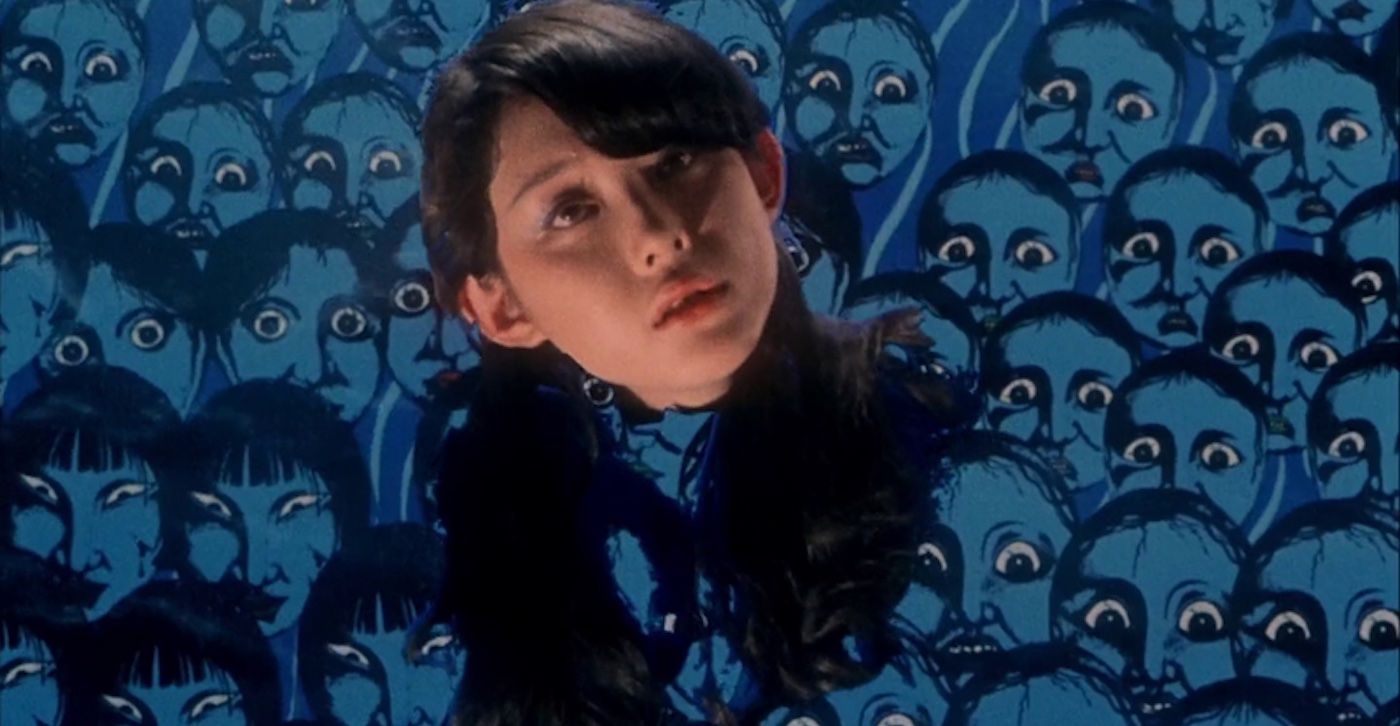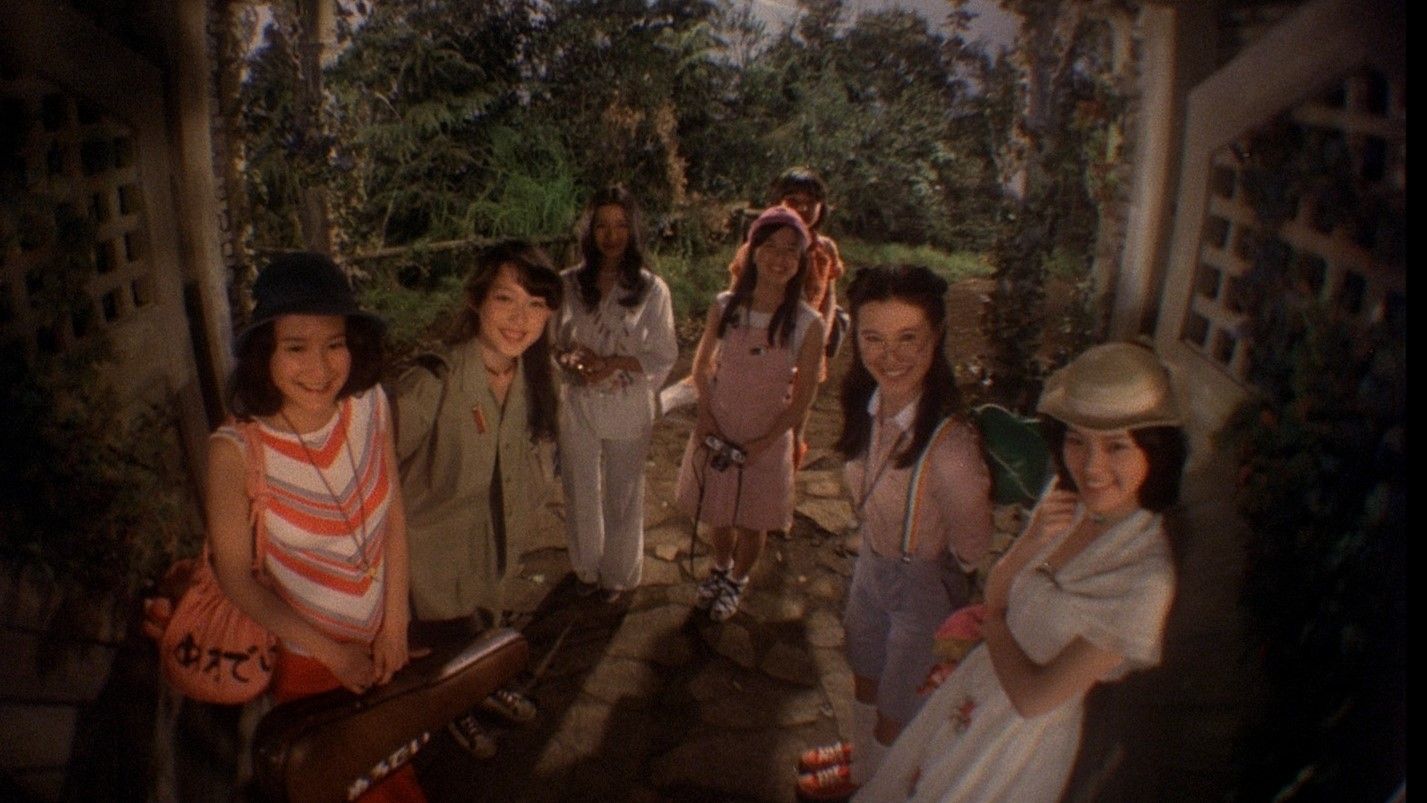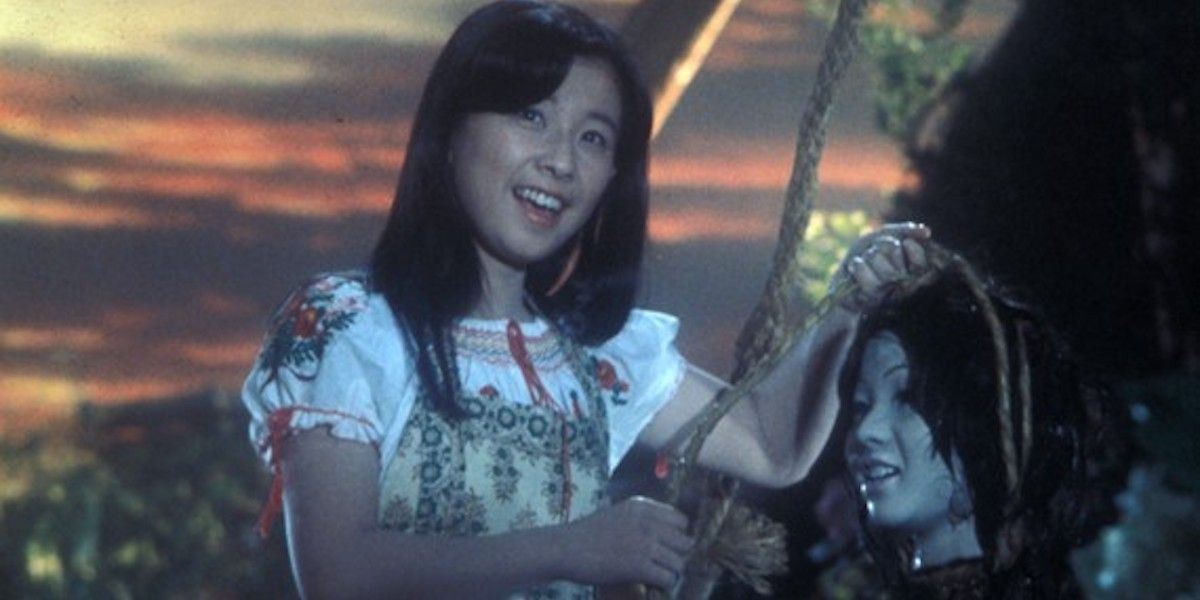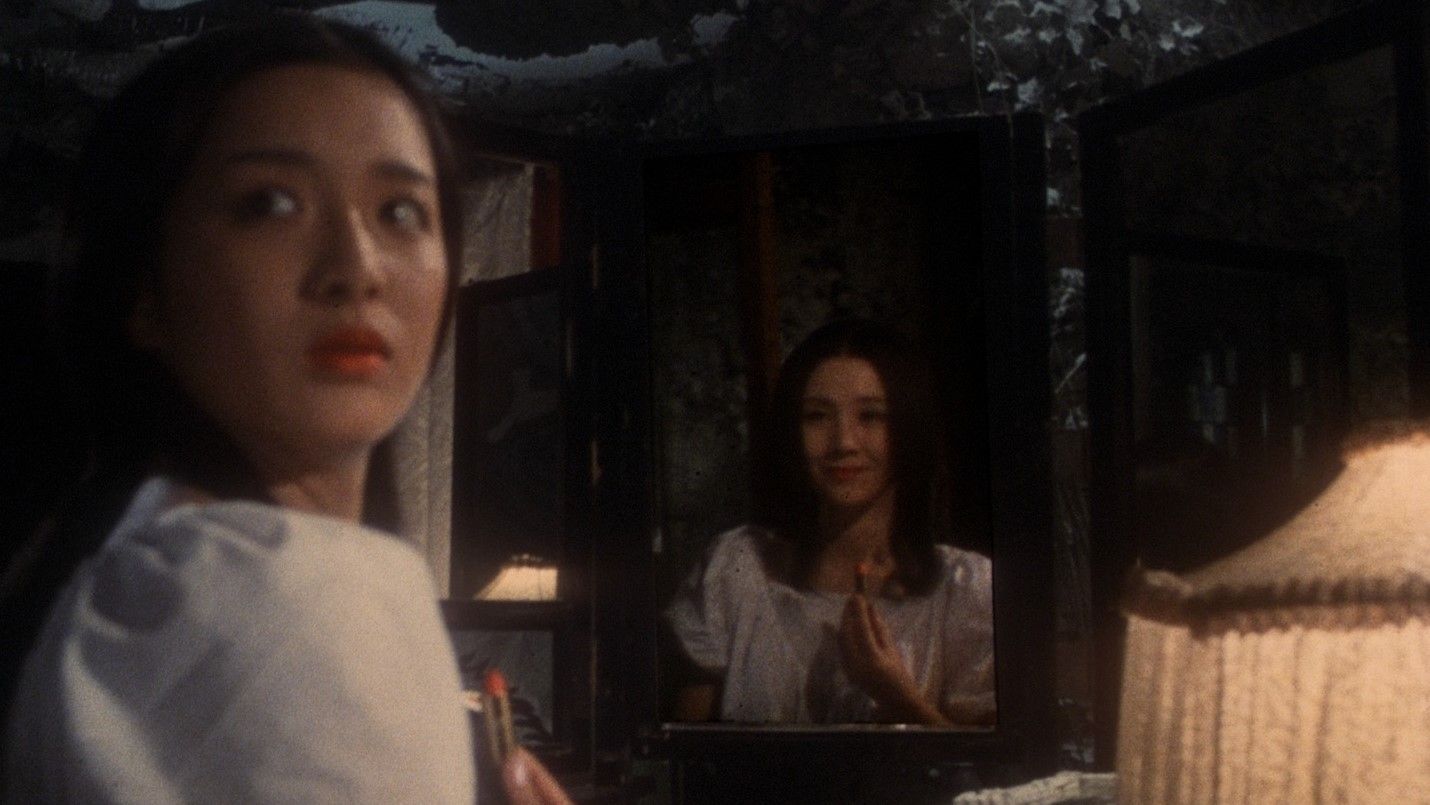Nobuhiko Ôbayashi’s 1977 experimental horror-comedy House tackles a different kind of fear. The film was developed by Toho studios in an attempt to capitalize on the success of Steven Spielberg's Jaws. What they got was something completely different. Upon first impressions, everything feels familiar enough. It's the story of seven school girls who visit an old auntie's manor in the countryside and are consequently killed off one by one. A haunted house movie filled with stereotypical beheadings, bloodbaths, and creepy dolls. Yet, these are not the elements that make House scary. What makes House scary is how it portrays the threat of heteronormativity through its abstract portrayal of marriage and a loss of individuality.
The suffocating theme of marriage casts a foreboding shadow over Ôbayashi's House. This theme is evident from the start when Gorgeous (Kimiko Ikegami) and Fantasy (Kumiko Ôba) compliment their gym teacher on the news of her engagement. The girls eagerly proclaim she must be getting married "for love" before their teacher smiles and tells them that it's an arranged marriage. As she sends the students back to class, we linger on their teacher's face. It's a smile but one of nostalgia for simpler times. "How nice. Summer vacation," the teacher remarks before going on her way. From the beginning, we see how the expectation of marriage claws at the freedom of its cast.
We are then introduced to the rest of the film's cast of girls, each one typified by a single personality trait. Including the aforementioned Gorgeous being named for her looks and Fantasy for her wild imagination, there is also Melody the pianist (Eriko Tanaka), Prof the academic (Ai Matsubara), Sweet, the innocent soul (Masayo Miyako), Kung-Fu, the martial artist (Miki Jinbo), and Mac (Mieko Satô), the hungry one. Having such vapid characters at first seems an intentional darkly comedic choice to contrast their cheerful cartoonish demeanors against the horrors they are about to face.
Rather, the one-dimensionality of House's cast exists to make a greater point of each girl's individuality before it is stripped away by the institution of marriage. To convey this, the fate of each girl lines up with the very personality trait that defines them ultimately being the death of them in various ironic ways. Mac being the first to die is representative of her not being able to find a suitor as a result of societal stigmas against eating habits like her own. Melody's death scene in which she is swallowed by a piano shows how marriage constricted her and prevented her from being able to follow her passion as a musician. As events progress, it becomes apparent that House is less like a horror movie and more like a twisted coming-of-age story.
Sweet's death is perhaps the most fascinating in the film. During the girl's stay at Auntie's house, Sweet takes on the principle role of housemaid and begins cleaning the manor. She enters a room full of bedding materials only to be surprised when she is pummeled into oblivion by an onslaught of falling mattresses. The girls investigate the room to discover Sweet's discarded clothes and a naked doll, a literal objectification of Sweet. Later on in the film, when Kung-Fu and Prof find Sweet's body trapped in a grandfather clock. The gears turn, gradually turning against her body and reducing her form to a red sludge oozing from the cracks of the machination. The cruelest fate of all. Time makes our youth obsolete. It's an on-the-nose depiction of the idea by having a girl trapped in literal clockwork, but House is hardly a quiet movie.
Then there's the film's male protagonist Mr. Tôgô (Kiyohiko Ozaki), or rather, the man who the film's girls wish were its protagonist. Tôgô is presented as the teacher of the school girls and a beacon of masculinity to them. Through all the terrors of the film, the girls remain hopeful that Mr. Tôgô will eventually arrive and save them from this nightmare. At one point Fantasy dreams of Tôgô literally arriving at the house like a knight in shining armor to rescue the girls. Fantasy is wearing a princess costume and rides with Mr. Tôgô into the sunset while a faux "The End" card shows up on screen.
"He's a man, after all, he can help us," Melody remarks, assuredly. Yet, as the girls are picked off, we cut to Mr. Tôgô's perspective as he makes his way to the old estate. We see that he's not in any brave rush. He's being yelled at in traffic or eating noodles at a pit stop diner. He's not coming to save them; he just exists to stifle their emotional independence. This is no more evident than in his death scene where he encounters a watermelon salesman and gets into an argument only to be turned into a pile of bananas. It's an absurd ending, sure, but what more fitting fate is there for a parody of the opposite gender than the hopelessly phallic symbol of a banana?
House's most tragic depiction of the supposed marriage is seen in Auntie (Yōko Minamida), the film's antagonist. Auntie was engaged at the start of World War II but, before she could get married, her fiancé was drafted in the army and died before he could return home. The girl's eventually learn that Auntie has now become a vengeful spirit, now eating unmarried girls who visit her countryside home. She kills each of the schoolgirls throughout the film and despite her cruelty, she is clearly a tragic character. She is not someone who is trapped in the obligation of marriage that plagues the other girls in the film. Instead, it's letting grief define her that is her largest flaw. Preying on the misfortune of others, to ensure they may never feel love like that which she was denied.
The story for House was inspired by the many childish fears of Ôbayashi's daughter Chigumi Ôbayashi. Obayashi drew from these fears when working on the screenplay with Chiho Katsura, including elements such as a girl-eating house or a disembodied head at the bottom of a well. It's fitting that a film littered with such abstract and child-like horrors would have the ever-present anxiety of maturation and the obligations that come with it at its core. Blood, witches, and ghosts are all rather ordinary in the face of the very real fear of growing up and saying goodbye to the simple bliss of summer vacation with your friends.




